LOS NAHUALES
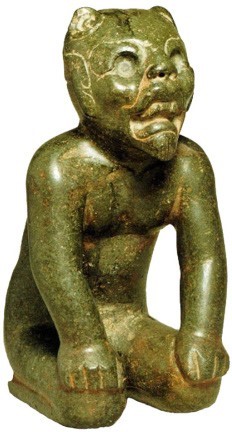
Olmec jaguar nahual
Small batch artesanal mezcal, since 1996. We respect, honor, and do business in ways that help preserve the indigenous origins of this wonderful disiilled spirit. 100% from sustainable agaves
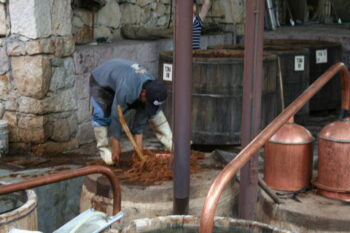
Along with Ron Cooper of del Maguey, Gustavo & Jaime Muñoz were the pioneers instrumental in bringing recognition to artisanal mezcal. In 1996, while founding restaurants in Mexico City and Oaxaca with the idea of putting indigenous Mexican cuisine on the world map of serious food, they bought a small destilería in Santiago Matatlan, the epicenter of Oaxacan mezcal distillation. They are serious about preserving the tradition – and about sustainability.
Los Nahuales is the name used in the USA market by Los Danzantes because of a conflicting trademark
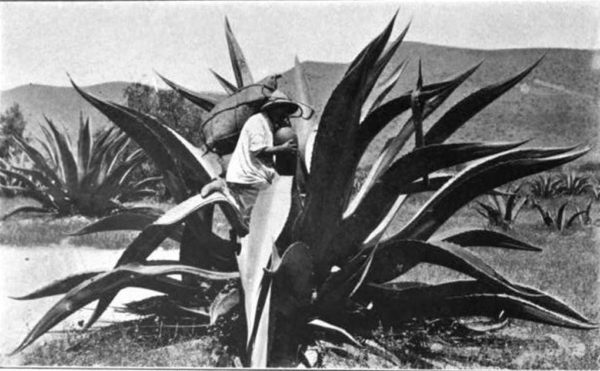
collecting agave sap for pulque, 1904
The agave was of serious sacred, cultural, and economic importance to indigenous Mexicans for a very long time. This man is extracting their milky sap to make pulque, an alcoholic beverage made from fermented agave sap.
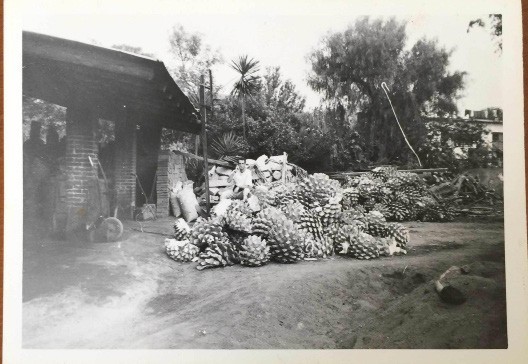
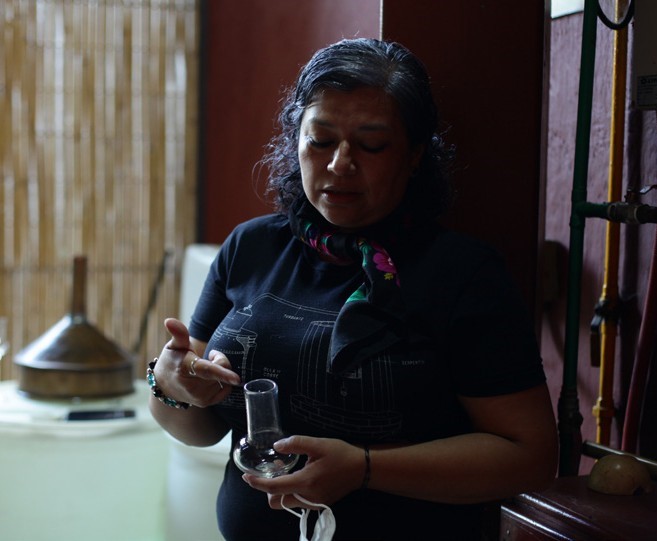
Hector Vasquez and, since 2012, Karina Abad are the humans who made the Los Nahuales mezcals so superb.. Both of them also managed the Alipus mezcal brand. This knowledge of different methods and of agaves from Oaxaca’s varied soils and microclimates has informed and deepened their work. About Karina Abad
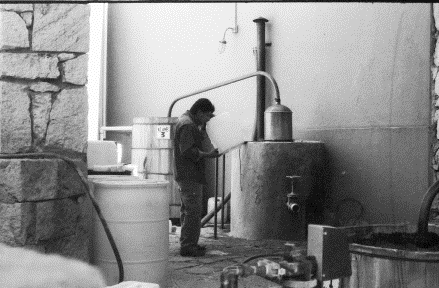
Hector and Karina introduced significant technical improvements: serious insulation of their stills; inoculation of fermentations with the best performing wild yeasts; using a slender copper coil and hot water to maintain fermentation during cold weather.
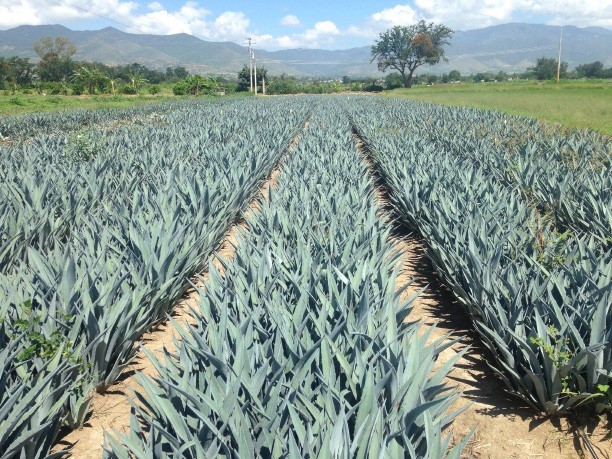
Los Nahuales is supported by a serious agave sustainability project. With the exception of occasional single-batch special releases, 100% of Los Nahuales mezcals are now from sustainable agaves.
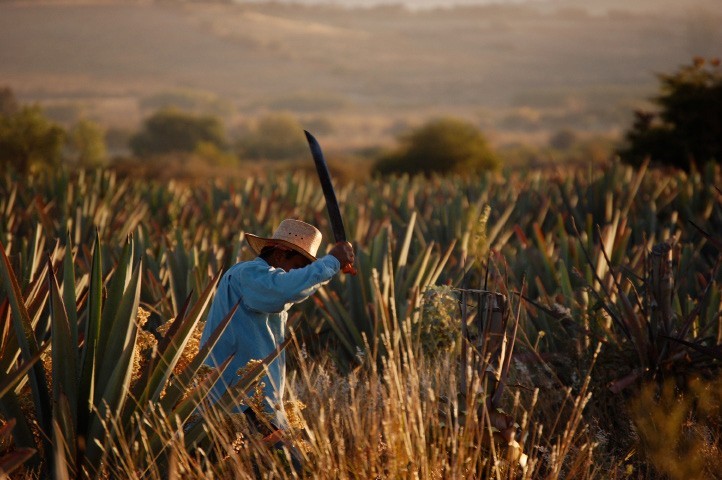
Harvesting mature espadin near Santiago Matatlan
Until recently, almost all Los Nahuales mezcals were distilled from cultivated agave espadín, widely planted in Oaxaca state. The agave espadín takes some ten to twelve years to fully mature and, when harvested, weighs up to 160 lbs. About Agaves
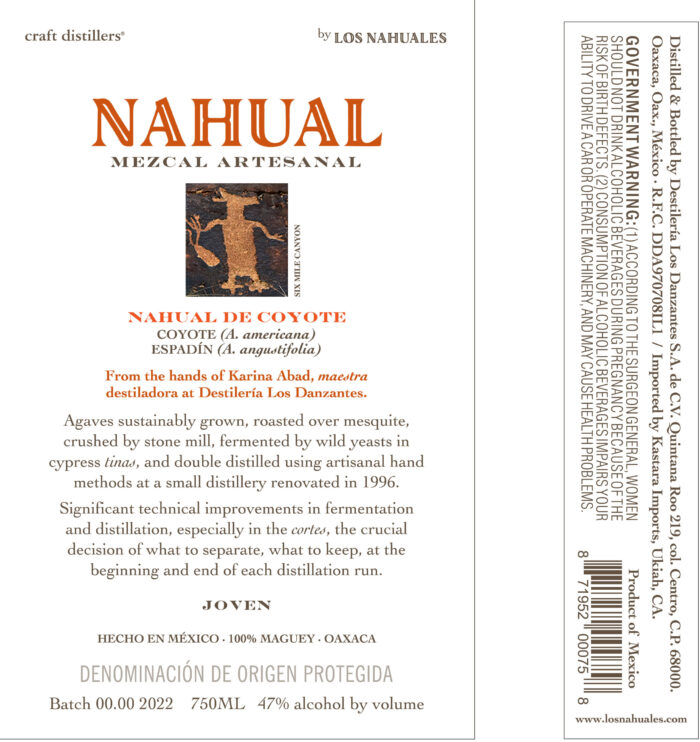
With the ambitious sustainability project, Los Nahuales can draw from formerly wild agave species now under cultivation, including coyote and arroqueño (both variants of agave Americana), In 2023, Los Nahuales introduced NAHUAL, a mezcal blanco distilled from 70% coyote and 30% espadín.
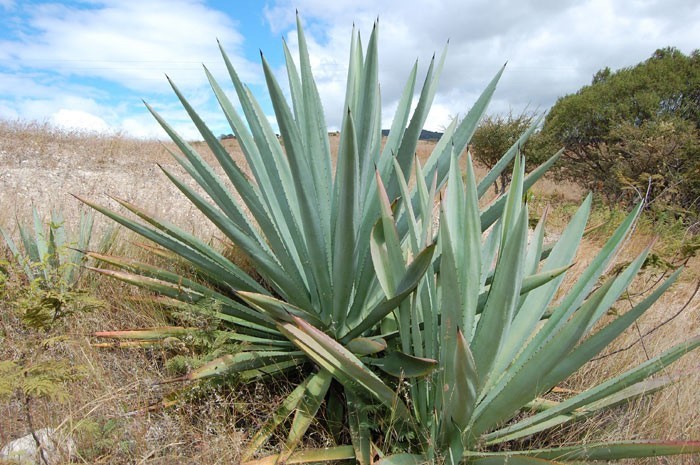
As the sustainable plantings mature. Los Nahuales will introduce releases based on arroqueño.
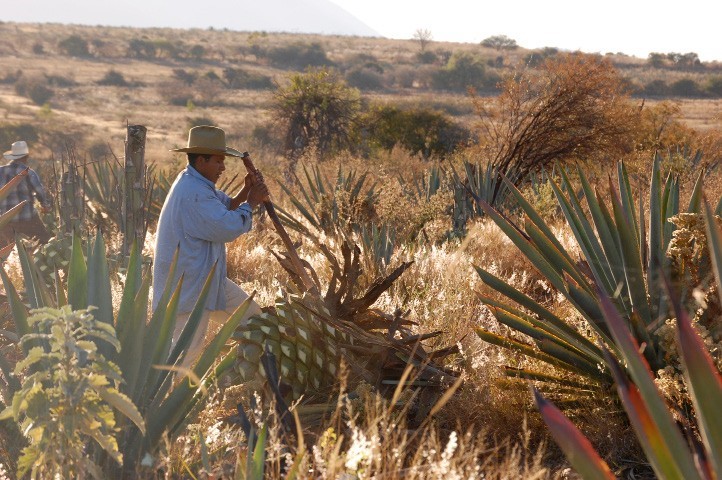
Mature agaves espadín are big, like 160lbs. This jimador is trimming off the roots.
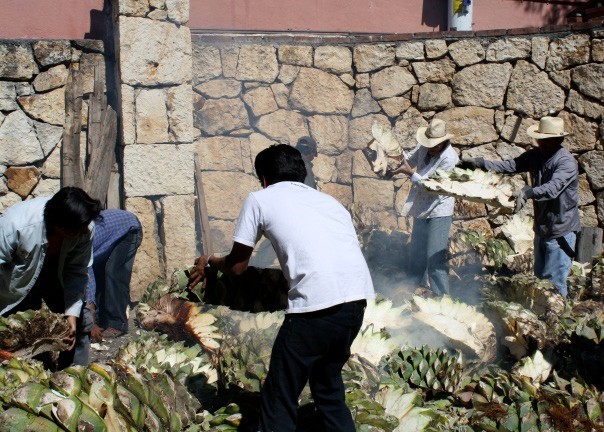
The agaves are cut in halves or quarters and roasted in a fire pit, using mesquite. Roasting turns the agave starches into sugars.
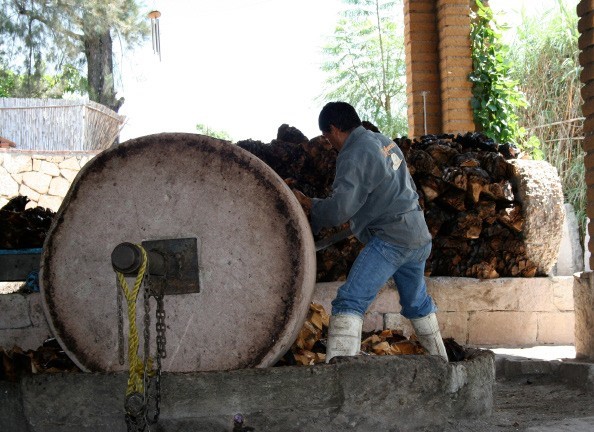
The roasted agaves are chopped into smaller pieces, then crushed using a traditional “Egyptian” stone mill.
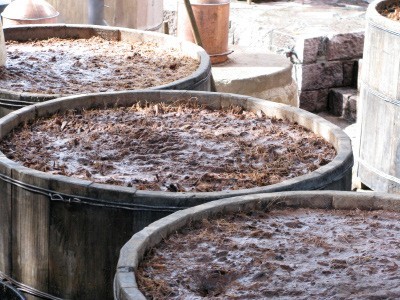
The crushed solids and their liquids are moved to open-top 600-liter wood fermentation vats. Fermentation by inoculated wild yeast turns the sugars into alcohol. It takes about a week.
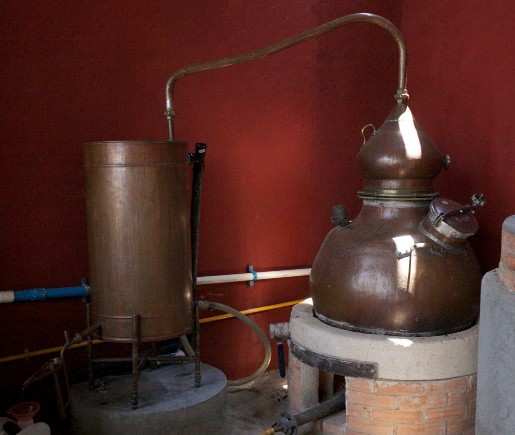
The fermented juices and solids (tequila is less complex because it leaves the solids out) are distilled twice in 250-liter copper pot stills. Half of each 2nd distillation is carried out with a 200-liter Hoga potstill brought in by Ansley Coale in 2014. The Hoga’s conical hat and swan’s neck yield mezcals of exceptional complexity and finesse
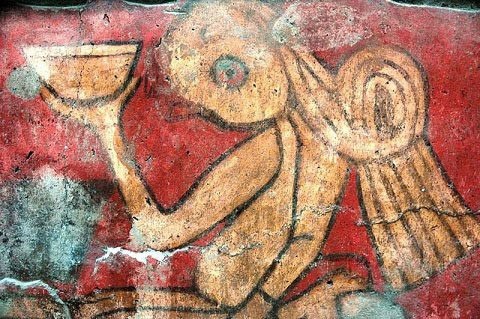
turning oneself into a bird from the bebedores mural beneath the pyramid of Cholula
Why call ourselves Los Nahuales? Something interesting is happening to this AD 200 drinker of pulque.
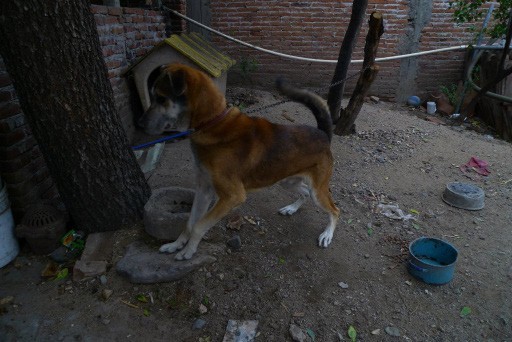
Unforeseen hazards of the mezcal trade: this dog bit Ron Cooper.